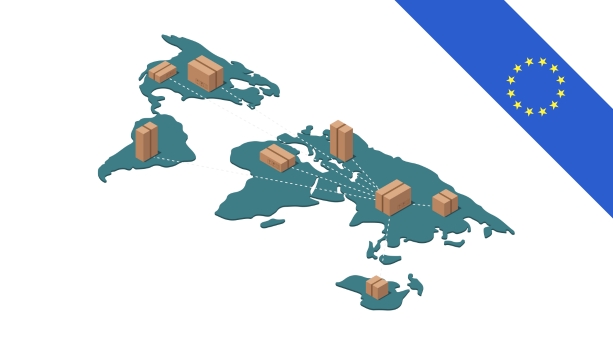
The EU Deforestation Regulation sets requirements for companies manufacturing, importing, trading, or distributing certain commodities. However, the specific documentation and due diligence procedures to demonstrate that products are deforestation-free depend on whether an entity is defined as an operator or trader.
To make matters even more complicated, both operators and traders defined as SMEs are treated differently.
In this guide, we explain how operators, traders, and SMEs are defined and how you can better understand what is required of each.
Content Overview

FREE CONSULTATION CALL (30 MIN)
 Ask questions about compliance requirements
Ask questions about compliance requirements Countries/markets:
Countries/markets:
 Learn how we can help your business
Learn how we can help your business
You will speak with:Ivan Malloci
EUDR Operators
Companies that initially introduce covered materials and products to the EU market are generally considered to be operators. The operator is generally responsible for establishing the due diligence procedures and gathering the required documentation.
EUDR Definition
‘operator’ means any natural or legal person who, in the course of a commercial activity, places relevant products on the market or exports them;
‘placing on the market’ means the first making available of a relevant commodity or relevant product on the Union market;
Operators are entities that either “place relevant products on the market” or export goods covered by the EUDR. Placing on the market is key here, as this refers to the first time a product is made available in the EU market.
For example, if a German company imports wooden furniture from Vietnam to the EU, then the German company would likely be defined as an operator under the EUDR.
Non-EU operators
Article 7 – Placing on the market by operators established in third countries
Where a natural or legal person established outside the Union places relevant products on the market, the first natural or legal person established in the Union who makes such relevant products available on the market shall be deemed to be an operator within the meaning of this Regulation.
EU-based companies that enable non-EU entities to sell covered products into the EU can be defined as operators and thus assume the responsibilities of operators. Marketplaces, agents, or even logistics companies enabling non-EU companies to sell covered products in the EU could potentially be defined as operators.
Examples
1. EU-based importers
2. EU-based manufacturers
3. EU-based exporters
4. Other entities that are first making covered products available in the EU
Operator Requirements
Obligations of operators – Article 4(1) and 4(2):
1. Operators shall exercise due diligence in accordance with Article 8 prior to placing relevant products on the market or exporting them in order to prove that the relevant products comply with Article 3.
2. Operators shall not place relevant products on the market or export them without prior submission of a due diligence statement. Operators who, on the basis of the due diligence exercised in accordance with Article 8, conclude that the relevant products comply with Article 3 shall, before placing the relevant products on the market or exporting them, make available a due diligence statement to the competent authorities through the information system referred to in Article 33. Such electronically available and transmittable due diligence statement shall contain the information set out in Annex II for the relevant products and a declaration by the operator that the operator exercised due diligence and that no or only a negligible risk was found.
1. Submit a due diligence statement in accordance with the requirements of Article 4, through the “Information System of the Deforestation Regulation”
2. Exercise due diligence in accordance with the requirements of Article 8, which means that they should:
- Collect information, data and documents to comply with Article 9
- Implement the risk assessment measures listed in Article 10
- Implement the risk mitigation measures listed in Article 11
3. Establish and maintain a due diligence system, and comply with reporting and record-keeping requirements
4. In the case of products imported from low-risk countries, exercise simplified due diligence by providing, upon request, documents that show a “negligible risk of circumvention” of the EUDR requirements.
Note that, in this case, it is not compulsory to implement the risk assessment and risk mitigation measures mentioned above.
SME Operators Requirements
1. According to Article 4(8), SME operators are not required to exercise due diligence for products for which a due diligence statement has already been submitted. However, the SME operator must still collect the reference number of the due diligence statement from their supplier and provide it to the authorities upon request.
2. Additionally, SME operators must maintain a due diligence system and comply with record-keeping requirements, as per the requirements of Article 12.
3. However, they do not need to comply with the reporting requirements listed in Article 12(3) and 12(4).
EUDR Traders
EUDR extends requirements to traders who, while not being the first to introduce products to the EU, are involved in buying and selling covered products.
EUDR Definition
‘trader’ means any person in the supply chain other than the operator who, in the course of a commercial activity, makes relevant products available on the market;
‘making available on the market’ means any supply of a relevant product for distribution, consumption or use on the Union market in the course of a commercial activity, whether in return for payment or free of charge;
Traders are entities involved in supplying covered products, but are not initially introducing the products in the EU. For example, if a furniture retailer in the Netherlands purchases wooden furniture from a German furniture importer, then the Dutch retailer is likely a trader.
That said, a trader is not only the first entity that purchases goods from an operator. As such, multiple companies that are trading the same products could be deemed as traders and therefore assume the corresponding responsibilities under the EUDR.
Examples
1. Retail chains and stores buying products from EU suppliers
2. E-commerce companies buying products from EU suppliers
3. Wholesalers buying products from EU suppliers
Trader Requirements
Obligations of traders – Article 5(1):
Traders that are not SMEs (‘non-SME traders’) shall be considered as non-SME operators and shall be subject to obligations and provisions in Articles 3, 4 and 6, Articles 8 to 13, Article 16(8) to (11) and Article 18 with regard to the relevant commodities and relevant products that they make available on the market.
Non-SME traders must comply with the same requirements as non-SME operators. That said, in practice, a trader is likely to vet due diligence procedures and documentation initially established by the operator.
SME Trader Requirements
SME traders must collect and keep the information listed in Article 5(3):
a. Name, address, email address and web address of their supplier (e.g. operator, trader)
b. Reference number of the due diligence statements that concern their product
c. Name, address, email address and web address of the operator of the trader to whom they have sold their products (if any)
Comparison Table
| Item | Operator | SME Operator | Trader | SME Trader |
| Due diligence statement (Article 4, Annex II) | Yes* | Yes (only 4(8))* | Yes | No |
| Information requirements (Article 9) | Yes* | No* | Yes | No |
| Risk assessment (Article 10) | Yes** | No* | Yes** | No |
| Risk mitigation (Article 11) | Yes** | No* | Yes** | No |
| Due diligence systems, reporting and record keeping (Article 12) | Yes | Yes (excluding 12(3) and 12(4)) | Yes | No |
| Simplified due diligence (Article 13) | Yes** | No* | Yes** | No |
| Article 5(3), 5(4), and 5(5) | No | No | No | Yes |
*Not-required for SME operators for which a due diligence statement has already been submitted, which must, however, get the reference number of the due diligence statement from their supplier.
**For products imported from low-risk countries, the requirements of Articles 10 and 11 do not apply. Instead, the simplified due diligence requirements (Article 13) apply.
FAQ
What is the difference between an operator and a trader under the EUDR?
An operator is a company that first makes available a product covered by the EUDR in the EU. A trader, on the other hand, is involved in buying and selling products covered by the EUDR that are already made available on the EU market.
For example, a German wholesaler importing wooden furniture from a factory in Vietnam is likely defined as an operator, as they introduce the products in the first place. If a retailer in, for example, the Netherlands buys their furniture, then the retailer is defined as a trader.
Are operators subject to stricter requirements than traders under the EUDR?
Yes, operators are subject to stricter requirements than traders. Generally speaking, operators are responsible for establishing the due diligence process. In practice, this means that operators must collect data and documentation to determine if a product or material did not contribute to deforestation.
However, non-SME traders are considered non-SME operators and are subject to the requirements that apply to operators.
How are small and medium-sized enterprises (SMEs) treated differently under the EUDR?
SME operators are not required to create a due diligence statement if they are purchasing from an operator or trader that has already submitted it, nor to exercise due diligence according to the requirements of Article 8. Instead, they must obtain the reference number of the due diligence statement from their supplier and provide it to the authorities upon request.
SME traders are only required to collect the information listed in Article 5(3) of the regulation.
Can a trader be located outside the EU?
The definition of a trader covers companies that are involved in the supply of products and materials already made available in the EU market. This indicates that a trader would, at least in most cases, be a business established in the European Union.
Can a company be both an operator and a trader?
Yes, a company is not rigidly classified as either an operator or a trader. This depends on whether the company is the first to introduce a specific product or material in the EU or not.
The table below demonstrates how a single company can be defined as an operator and trader under the EUDR at the same time.
| Action | Operator | Trader |
| Importing wooden furniture from a supplier in Vietnam | Yes (introducing the product for the first time in the EU) | No (The definition of trader excludes operators) |
| Buying packaging materials from a supplier in France | No (the packaging is already made available in the EU) | Yes (as we are still involved in the supply, but not operators) |
Are EU importers defined as operators or traders?
An EU importer that is first introducing a product or material covered by the EUDR is likely defined as an operator.
Are EU exporters defined as operators or traders?
EU exporters can be defined as operators.
Are EU manufacturers defined as operators or traders?
EU manufacturers who first introduce a product or material covered under the EUDR can be defined as operators.
Are stores and retailers defined as operators or traders?
Stores and retailers are generally deemed to be traders, assuming they procure products from EU-based companies. If they, on the other hand, import products from suppliers outside the EU, then they are defined as operators.

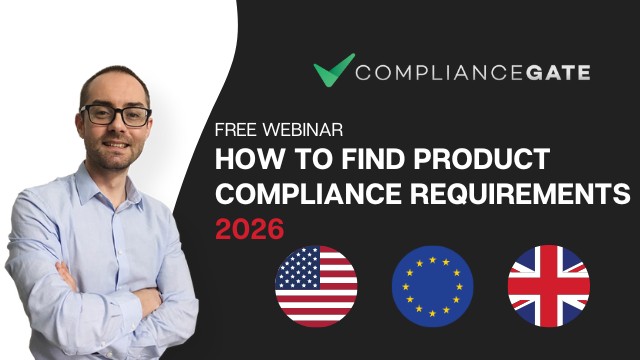
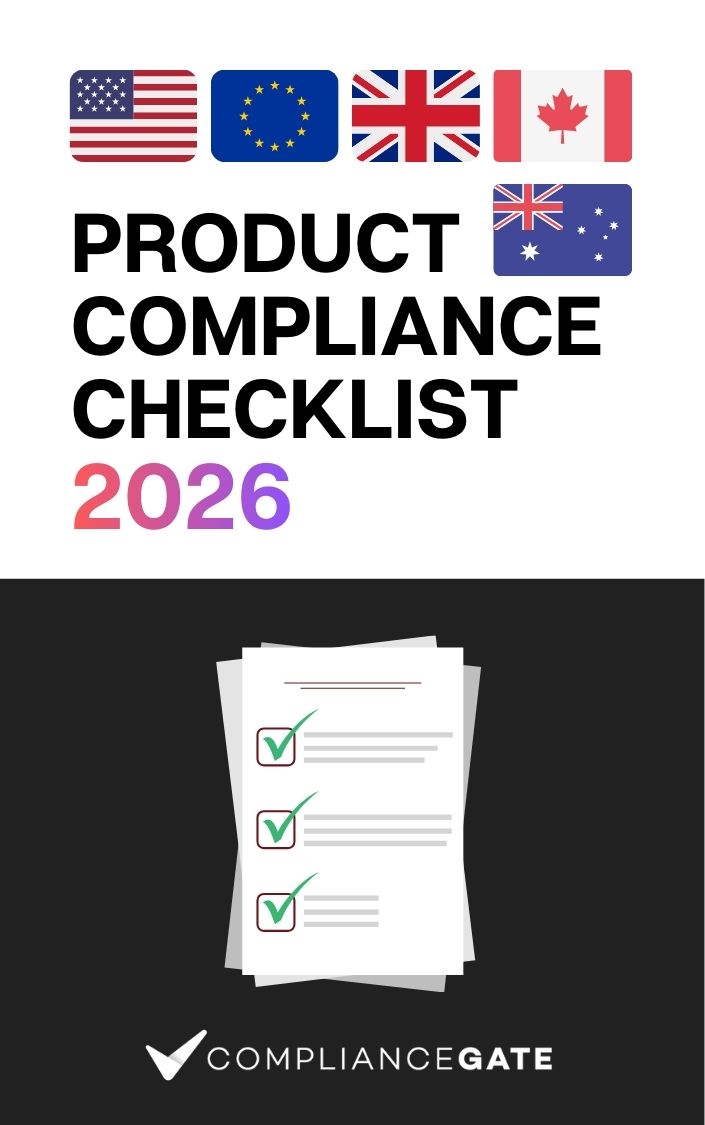




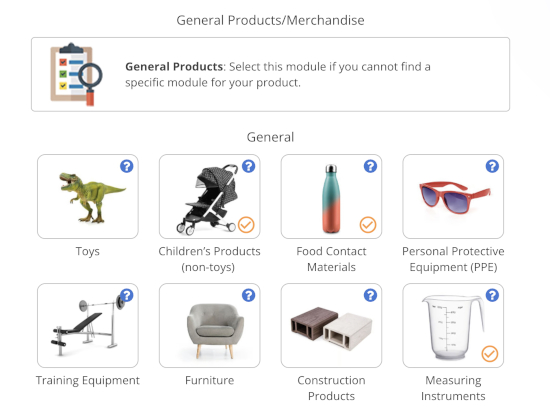






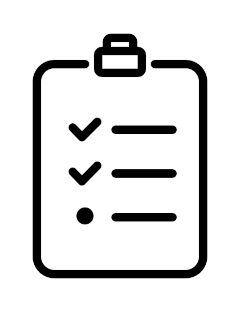


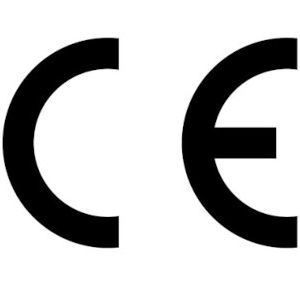




.png)
.png)
.png)





